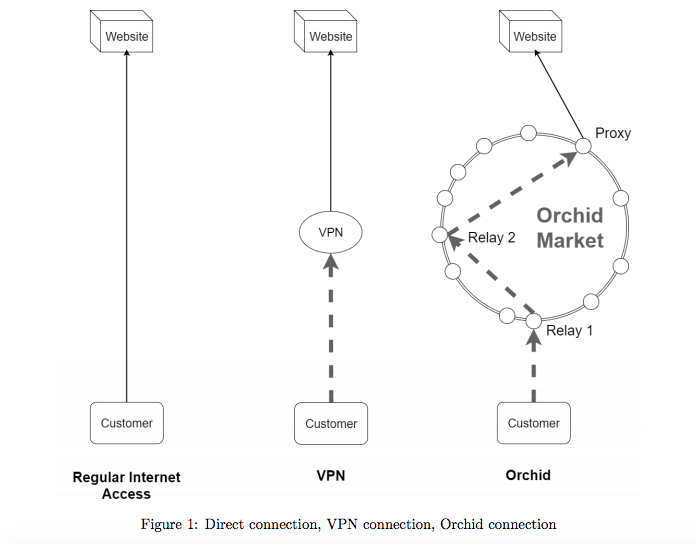
Orchid Labs, a company headquartered in San Francisco, has launched the private alpha version of its blockchain-based Orchid network, which is said to allow users to access the Internet free of censorship, restrictions and surveillance.
 The Orchid Protocol uses an overlay network built upon the existing Internet, which incentivizes people with unused bandwidth to share it with other users in exchange for payment in Orchid’s ERC20-compatible token.
The Orchid Protocol uses an overlay network built upon the existing Internet, which incentivizes people with unused bandwidth to share it with other users in exchange for payment in Orchid’s ERC20-compatible token.
The company says it is a more viable option than Tor and virtual private networks (VPNs), which have become increasingly difficult to access in places like China, and assures that central authorities won’t be able to monitor traffic or payments.
The idea originated from Internet restrictions Orchid Labs co-founder Stephen Bell experienced while living and investing in China, he told Axios. Bell, an entrepreneur with more than a decade of experience backing Chinese seed stage startups, joined hands with four other technologists, entrepreneurs and blockchain experts, including Steve Waterhouse, a former partner at Pantera Capital, Gustav Simmonson, an engineer and developer who helped launch Ethereum in 2015, and Jay Freeman, a software engineer and the creator of the Cydia software distribution platform, to found Orchid Labs and build the protocol.
“Our focus is reimagining the Internet as decentralized, censorship and surveillance-free and using blockchain to achieve this vision,” said Waterhouse. “Think of it as a new anonymous VPN or a much better TOR with cryptocurrency incentives.”
Orchid is fully decentralized, meaning that rather than traffic being routed through central authorities, such as a user’s ISP or VPN, it’s instead routed randomly through a network of nodes as bandwidth contributors sign up to share their surplus bandwidth and activate their internet-connected device as a “node.”
Users that want to access surveillance-free Internet pay bandwidth contributors in Orchid tokens through a peer-to-peer exchange.

Orchid Labs’ technology has already caught the attention of investors. The startups raised US$4.7 million in seed funding through a Simple Agreement for Future Tokens (SAFT) last month. The group of investors included Sequoia Capital, Andreessen Horowitz, DFJ, PolyChain Capital, Metastable, Blockchain Capital, Crunchfund, Struck Capital, Compound VC, European Investor Richard Muirhead, and several other funds and angel investors.
“There’s lots of exploration right now around what are the interesting or useful applications beyond bitcoin,” Matt Huang, a partner at Sequoia Capital, told Business Insider. “Orchid struck us as one of the first killer apps that we can see getting broad appeal. It also has an important mission that we think is very timely in the world today.”
A public beta of the Orchid Protocol is expected for release in early 2018.

